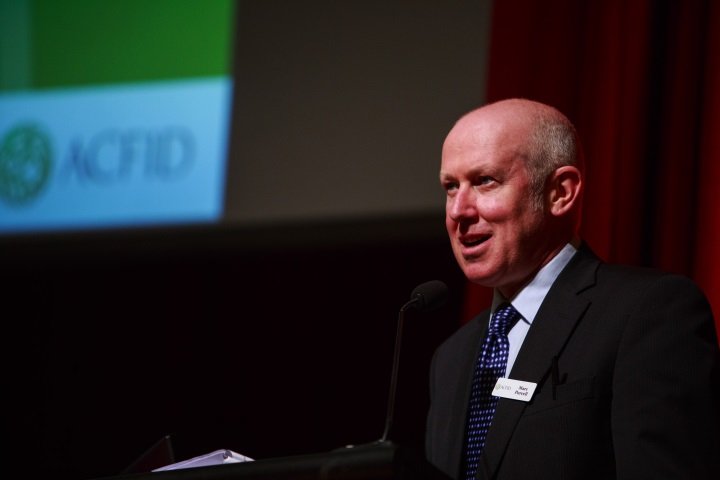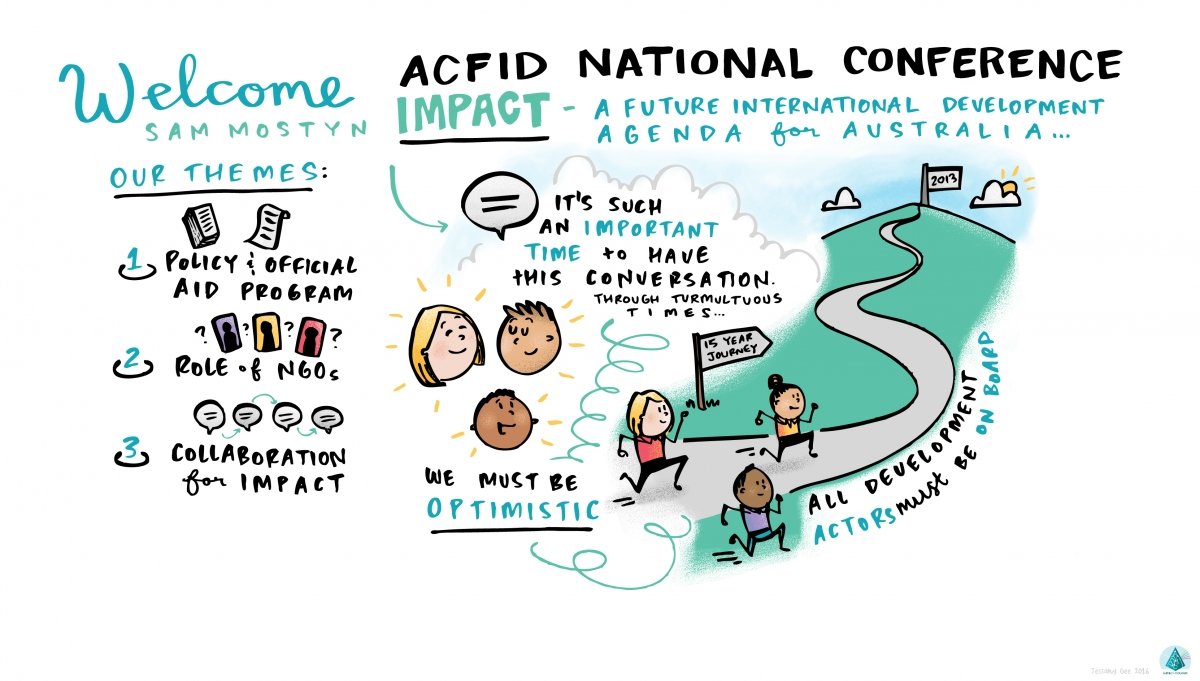Reflections on the 2016 National Conference, Marc Purcell, ACFID CEO

ACFID’s national conference in October 2016 marked our largest member engagement event in recent years and the culmination of months of preparation by ACFID’s secretariat.
Building on previous conference themes of ‘disruptive change’ and ‘innovation’, we explored a bold, future agenda for the Australian development sector, taking into account the changing context for development, the need to innovate and do development differently, in order to have impact. In doing so, we tackled three themes: Australia’s development agenda in 2025; The role of Australian NGOs in 2025; and Collaboration for maximum impact.
Thought-provoking speeches challenging the way we approach development were made throughout conference. Not only did they provoke new thinking, but also set delegates on a path to answering some of our most confronting questions. Member-led sessions and expert panels allowed delegates to horizon-scan, but also delivered practical steps for changing practice.
There are questions which arose at conference which we must now answer. How do we better partnerwith the communities in which we work and shape our own organisations accordingly? Where and how do we focus our official aid and development efforts to deliver the greatest impact and implement the SDGs? How can our sector become more effective at collaboration both with ourselves and other actors to affect structural change and longer lasting social impact. And, as Minister Concetta Fierravanti-Wells posed at conference, how can we better communicate with the public about the importance of aid and development?
As we face a crucial juncture for foreign policy and development, we must lead the conversation and strongly advocate our best ideas and practical solutions to our key stakeholders and the public. The Government’s White Paper for Foreign Policy is a great opportunity for ACFID and its members to make our case.
We look forward to working with our partners to grasp this opportunity.
Marc Purcell, ACFID CEO




